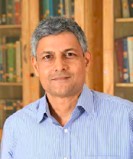
- This event has passed.
TYC Seminar: Understanding the action of pore forming proteins: Insights from molecular dynamics simulations, single molecule experiments and oligomerization kinetics – K Ganapathy Ayappa, Indian Institute of Science
View the recording HERE
24 July 2023 @ 2:00 pm – 3:00 pm

Venue: Harrie Massey LT, UCL and Zoom
Abstract:
The plasma membrane of our cells form the first line of defence to external threats. Protein-membrane interactions dominate this landscape, playing an important role in our understanding of a myriad of bacterial and viral infections. Phenomena range from membrane-assisted protein aggregation, oligomerization and folding. Pore-forming toxins a subclass of proteins expressed by bacteria form their primary arsenal responsible for over 30 % of bacterial infections. Pore forming proteins/toxins expressed in a water-soluble form bind to the target cellular membrane and self-assemble to form multimeric transmembrane pore complexes to eventually kill the cell. In this talk I will summarize our understanding of the pore forming toxin cytolysin A (ClyA) – a 34 kDa protein expressed by E. coli and known to undergo one of the largest conformational transitions during pore formation.
We use large scale molecular dynamics simulations at atomistic and coarse grained levels and enhanced free energy sampling methods in combination with experiments on supported bilayer and vesicle platforms to unravel the process of membrane insertion and kinetics of pore formation. Each of the different techniques offers unique insights at different length and time scales into membrane binding, influence of lipid composition as well as the inherent conformational changes that the protein undergoes during the pore formation process. We connect membrane insertion and ensuing conformational changes with recent superresolution and single molecule microscopy data to provide molecular insights into the pore forming pathway.
Bio:
Professor Ayappa obtained his Bachelors degree in Chemical Engineering from Mangalore University, India in 1984, and an MS and PhD in Chemical Engineering with a Minor in Mathematics from the Department of Chemical Engineering and Materials Science at the University of Minnesota, in 1992. Professor Ayappa has held visiting positions at the University of North Carolina, the James Franck Institute at the University of Chicago and Department of Materials at ETH Zurich. He is a fellow of the Indian National Academy of Engineers and the National Science Academy. His interests lie in developing a molecular understanding of structure and dynamics of molecules at the nanoscale using molecular simulations and statistical mechanics. Current research interests lie in the area of biological membranes, membrane-protein interactions implicated in bacterial and viral infections, cellular signalling and dynamics at the nanoscale.
Organised by:
Edina Rosta
e.rosta@ucl.ac.uk
